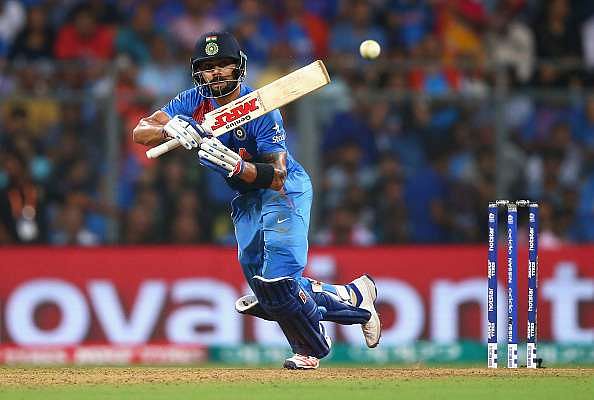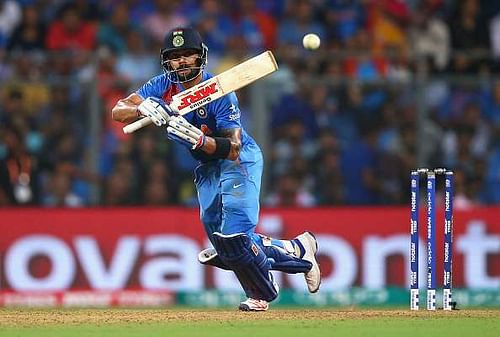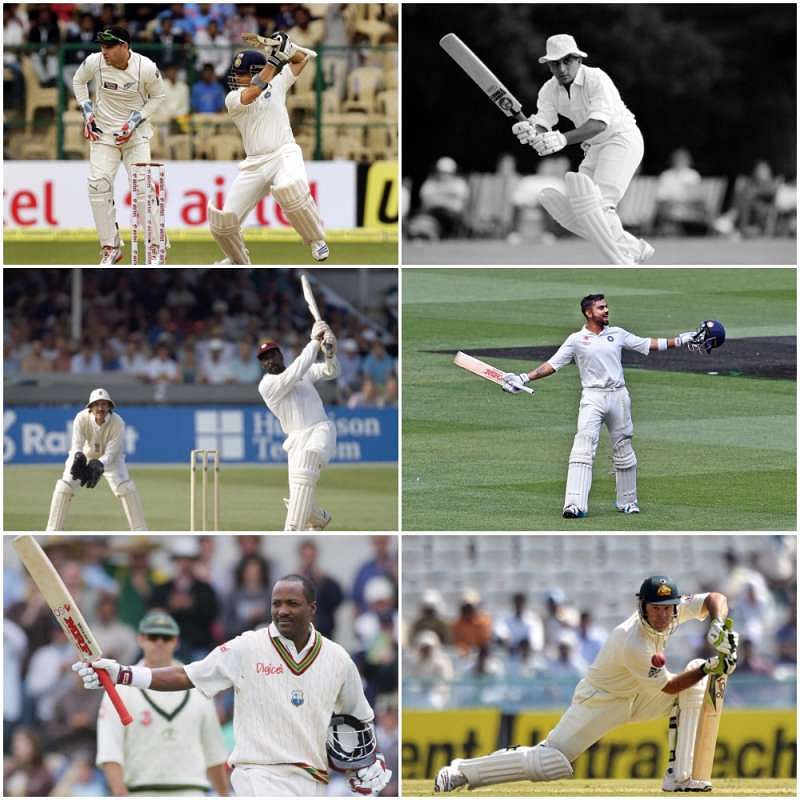
The best batsman debate has always been in the present continuous and without unanimity

True to character, a couple of outspoken Australian cricketers have started off yet another ‘best batsman in the world’ debate quite unknowingly. This is not the first time this has happened but certainly appears to be the first as far as the present generation of cricketers are concerned.
In an interview to the Indian media on a trip to the country recently, former Aussie captain and batting great Ricky Ponting refused to single out Virat Kohli as the best in the business today, much to the disappointment of Indian fans. Earlier, former Aussie fast bowler Brett Lee had started the debate when he unambiguously opted for Kohli as the best batsman in the world currently. Trust the Aussies to trigger a debate!
Former New Zealand captain Stephen Fleming also waded into the debate pointing out that apart from Virat Kohli there were a few other batsmen around the world “who play a great brand of exciting cricket.”
Now the Indian media loves to play this game from time to time. Every time they believe and because of perceptions created by them, the Indian fans believe, that their man is the best batsman in the game, they go about fishing for endorsements from all quarters.
Remember the same kind of Indian media-generated debate when a certain Sachin Tendulkar was at the peak of his trade and before that a certain Sunil Gavaskar?
And such is our intolerance towards any other opinion except our own on this subject, that every time there is a response not palatable to us, we quickly go searching for one which is, to ensure our contention is winning the race. It’s like Sachin 5 – Kallis 4, so Sachin is the best!
In the yesteryears, if someone said Boycott or Zaheer Abbas or Viv Richards, or Kallis or Lara or Ponting, as the case maybe, the media would hound out someone equally credible to say ‘Gavaskar’ or ‘Tendulkar’ and would not rest till that happened. Ricky Ponting has now sent the Indian media on a Pokemon hunt again, by not agreeing to Brett Lee’s contention. But Stephen Fleming, unfortunately, was not prepared to play ball.
So, do not be surprised, if in the coming days you find a Shane Warne or a Kevin Pietersen, the kind who know how to play the Indian media and the lucrative India cricket market well - just like Brett Lee does, by the way, being quoted as saying that Virat is the best in the business at the moment. Just as you begin to feel you are winning, you can trust the indomitable Greg Chappell to bring you to the ground again.
Comparing between players of different generations is futile
Now, there is nothing wrong in wanting to be the best or for that matter wanting to share your nationality with the best.
But, the thing with the best batsman debate is that it is always in the present continuous when one generation is active in the sport and even after a generation has retired, i.e. their full body of work is frozen in time, there is certainly never any unanimity since a certain Donald Bradman decided to play his last cricket match.
Therefore, you could never differentiate between a Gavaskar or a Viv Richards or even a Tendulkar, Kallis or Lara.

In the present times, this holds even more true. This is because cricket is today played across three distinct formats. All three formats are actually very different sports by themselves and require totally different techniques, temperament and skill sets. It was the same when there were just the two formats i.e. just Tests and One Day Internationals (ODIs) except probably during the first decade of ODI cricket.
In the same actively playing generation, one would probably pick Sunil Gavaskar or Geoff Boycott as first pick in a Test eleven but opt for Viv Richards or Javed Miandad in the ODI format. Similarly, anyone with any knowledge of international cricket would surely pick a Michael Bevan or an Inzamam-ul-Haq or a Sanath Jayasuriya over Sachin Tendulkar in an ODI squad if only one pick was allowed but blindly opt for the Mumbaikar or Rahul Dravid or Jacque Kallis in the longer format.
Which format to compare players with?
This differentiation has now extended to the T20 format as well. Today, big-hitting West-Indian Chris Gayle would probably don the mantle of the best in the world when it came to T20 batting, but he would not find mention in an expert’s Test or ODI squad.
Virat Kohli, who will definitely be right up there across the three formats, though clearly the best in the ODI format as his averages and longevity suggest, will, as we have already found out, find it difficult to get endorsement from all quarters in the game’s original international format spread over five days.
And therein lies the crux of this debate. What parameters do you consider when trying to ascertain who is the best batsman going around currently and that a logical and unanimous conclusion can be arrived at?
The easiest way to do that is to analyse their performance across the three formats and whoever has the best-combined numbers be given the crown. If this were to happen, Virat Kohli would win the debate hands down and all of us here in India would be happy.
Tests still the litmus test
Past experience, however, suggests that cricketers both past and present, who have played for a considerable length of time at the highest level of the sport, generally lend prime weightage to an accomplished and successful Test batsman in such a debate.
Some do play to the galleries when commercial interests become a priority post-retirement, but they are only a handful and you only have to go back to their thoughts shared during their playing days to find out that they had shifted the goalpost. Predominantly, successful Test batsmen still dominate the best-batsman debate.
Not that it matters to the fan. They have their personal favourites and stick by them through thick and thin. However, it does matter to the collective conscience I guess.
Having played a little bit of the game at some level myself, I am also of the firm view that the best Test batsman is also the best batsman in the game.
Simply because the different conditions that a Test batsman needs to overcome all over the world, the concentration, fitness and focus required to bat for long hours and the fact that a bowler’s chance to get you out is not limited to ten or four overs, as the case maybe, make it much more challenging and a true test of character as well as batting technique and skills that an individual possesses.
You will be caught out in Tests if you are not at the top on all those fronts.
Ask a Rohit Sharma or Suresh Raina and they will tell you.
Going by this logic, in the present continuous, it will be very difficult to look beyond Younis Khan and AB de Villiers in this regard. Check out their overall record.